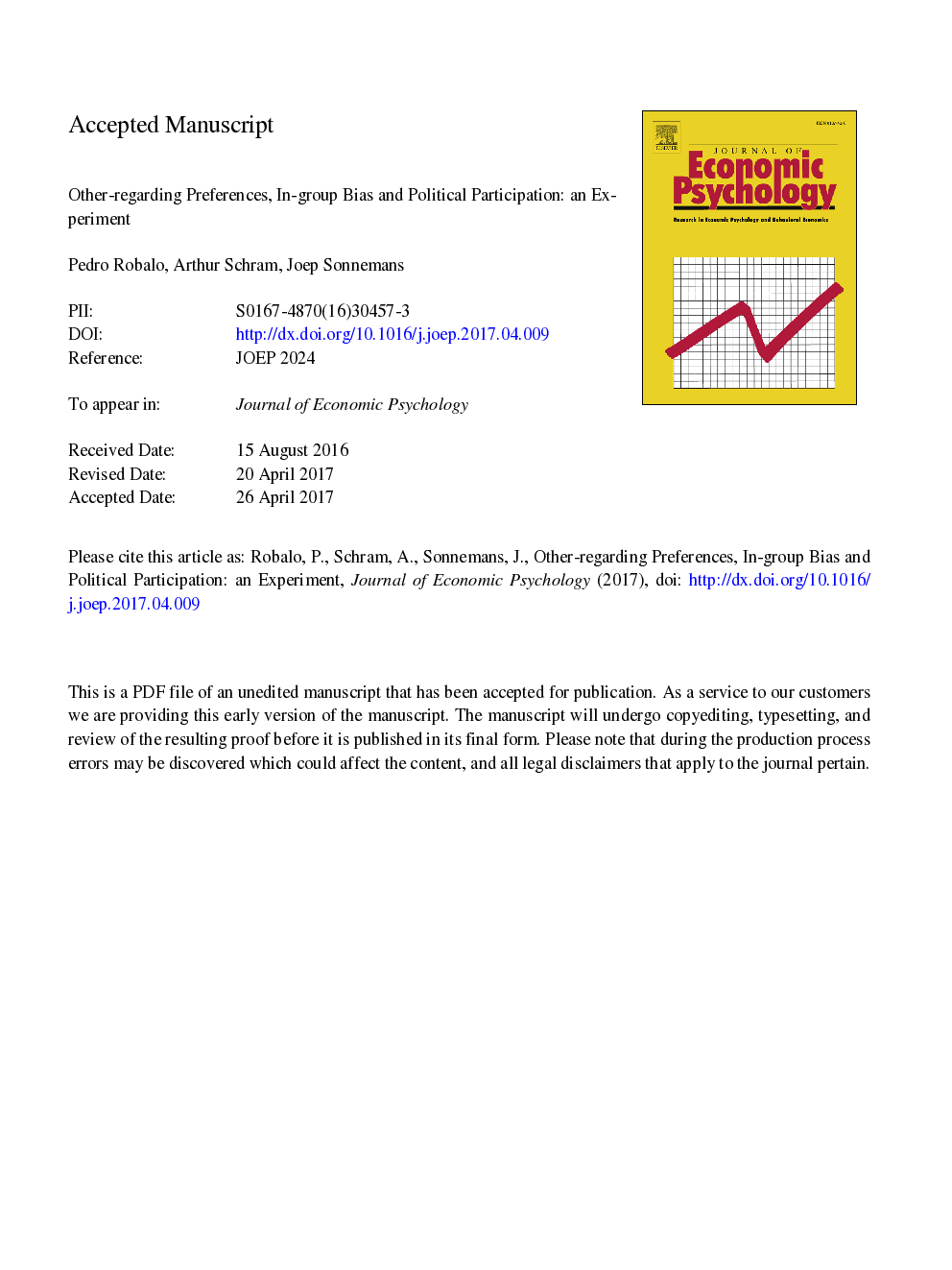| Article ID | Journal | Published Year | Pages | File Type |
|---|---|---|---|---|
| 5034733 | Journal of Economic Psychology | 2017 | 43 Pages |
Abstract
This paper presents an experimental study on the relationship between other-regarding preferences, in-group bias and political participation. We conjecture that subjects who are more other-regarding and exhibit higher in-group bias are more likely to bear the costs of participating in group action. Using a participation game, we implement laboratory elections in which two groups compete for victory. We induce different levels of in-group bias across subjects in order to implement treatments in which the competing groups are either highly biased towards the own group vis-Ã -vis the other one or are characterized by low levels of such in-group bias. Our results show that, at the aggregate level, participation is higher in environments where in-group bias is more pronounced. Furthermore, the least other-regarding subjects participate much less often that others, while the more other-regarding sustain high participation levels. These findings suggest that interpersonal preferences and intergroup bonds can explain the higher participation of close-knit (political) groups observed in the field.
Related Topics
Social Sciences and Humanities
Business, Management and Accounting
Marketing
Authors
Pedro Robalo, Arthur Schram, Joep Sonnemans,
